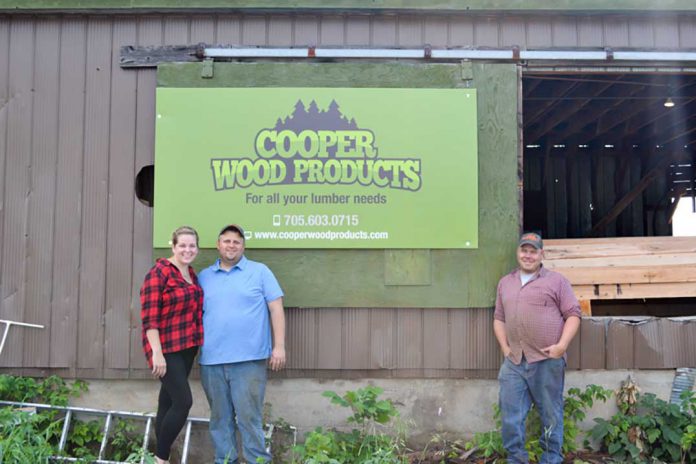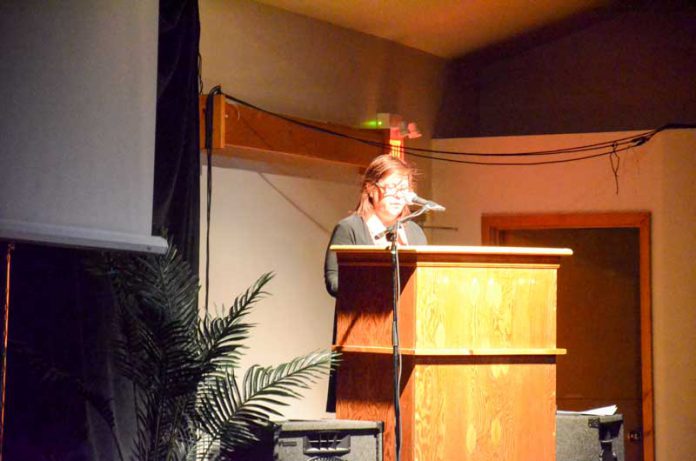The famous line from Shakespeare’s ‘Romeo and Juliet’ “What’s in a name?” proposes that “a rose by any other name would smell as sweet.” But names hold far more within their bounds than scent, colour or thorns. With the publishing of each weekly edition of The Expositor the phones begin to ring, as concerned readers call to inform us that we have misspelled “Wikwemikong.” We haven’t—we are endeavouring to use the correct spelling.
Those who follow these pages closely will have noticed a number of changes that this news organization is implementing when it comes to our reporting of news in Manitoulin’s largest and oldest community. The Expositor rarely uses the official Canadian designation of Wiikwemkoong Unceded Territories as “Wikwemikong Unceded Indian Reserve” as that title is both historically inaccurate and offensive to a good number of the members of that First Nation. Wiikwemkoong is also more accurate representation of that community’s name in the common script.
These changes can sometimes be unsettling for those who have known Wiikwemkoong as Wikwemikong all of their lives, and readers might well wonder why The Expositor would make such a change, after all, what’s in a name? Plenty.
The very first thing an Anishinabe person will say in striking up a conversation with someone they do not know, after the formal boozhoo or informal aanii, is their name, their community, their clan and even the names of their parents and grandparents. The Anishinaabe place themselves within the constellation of the larger First Nation community so that the other person they are meeting knows who they are and where they come from. A lot of history is encapsulated in names—and a lot of pride.
Now a close observer will note that there is some inconsistency in the use of Wiikwemkoong and Wikwemikong in the paper. When an organization’s official name, such as the Wikwemikong Tribal Police, we will usually use that name until it has been officially changed by that organization. But largely we will endeavour to use the spelling preferred by that community. This is not a nod to “political correctness,” it is simply correct and there is no compelling reason to not be accurate and a host of good reasons to not continue a historical wrong.
In the grand scheme of things, it may be a small effort on our part to help set things right, to correct a wrong that is symbolic of so many wrongs that still block the path to reconciliation in our nation and closer to home here on Manitoulin Island. Just as we were quick to adopt the name changes of West Bay to M’Chigeeng, of Sucker Creek to Aundeck Omni Kaning (stay tuned, according to local language authorities this one will likely need tweaking in the future), so we are making every effort to adopt the change in spelling of Wiikwemkoong. It is not an exact science and there is no official lexicon or authority to which we can defer, so bear with us as we take ginger steps along this path.
This paper has also recently changed the capitalization on the word Indigenous. While we have long capitalized the word Native, when used as an appellation for Anishinabe, or any of the other nations indigenous to these territories, we have been slow to adopt the term Indigenous the way we would the terms French or English for those nationalities. It is a fundamental declaration of this paper’s recognition of the nation to nation relationships that are the foundation of Canada.
The Expositor often utilizes Anishinabe terms, such as ogimaa for chief, the aforementioned Anishinabe as a group term representing the Three Fires of the Ojibwe, Odawa and Potowatamie, sometimes with a bracketed translation to assist those who may be unfamiliar with those terms. We are far from perfect or consistent in this policy, so again, please bear with us.
A rose by any other name might smell as sweet, but when it comes to the use of words to convey information, the choice of words used and how they are presented can say a lot. As we move along the path to building a mutually respectful relationship between the descendants of the original inhabitants of this land we call Canada and those who came later, and as an organization whose very foundation is based on words and striving to get things right.
So thank you to those who call The Expositor to correct any errors that might appear within the reports we deliver to our faithful readers, and please do continue to call us out when we get something wrong to keep us on our toes, but in the case of the spelling of Wiikwemkoong, this newspaper stands by its story.




